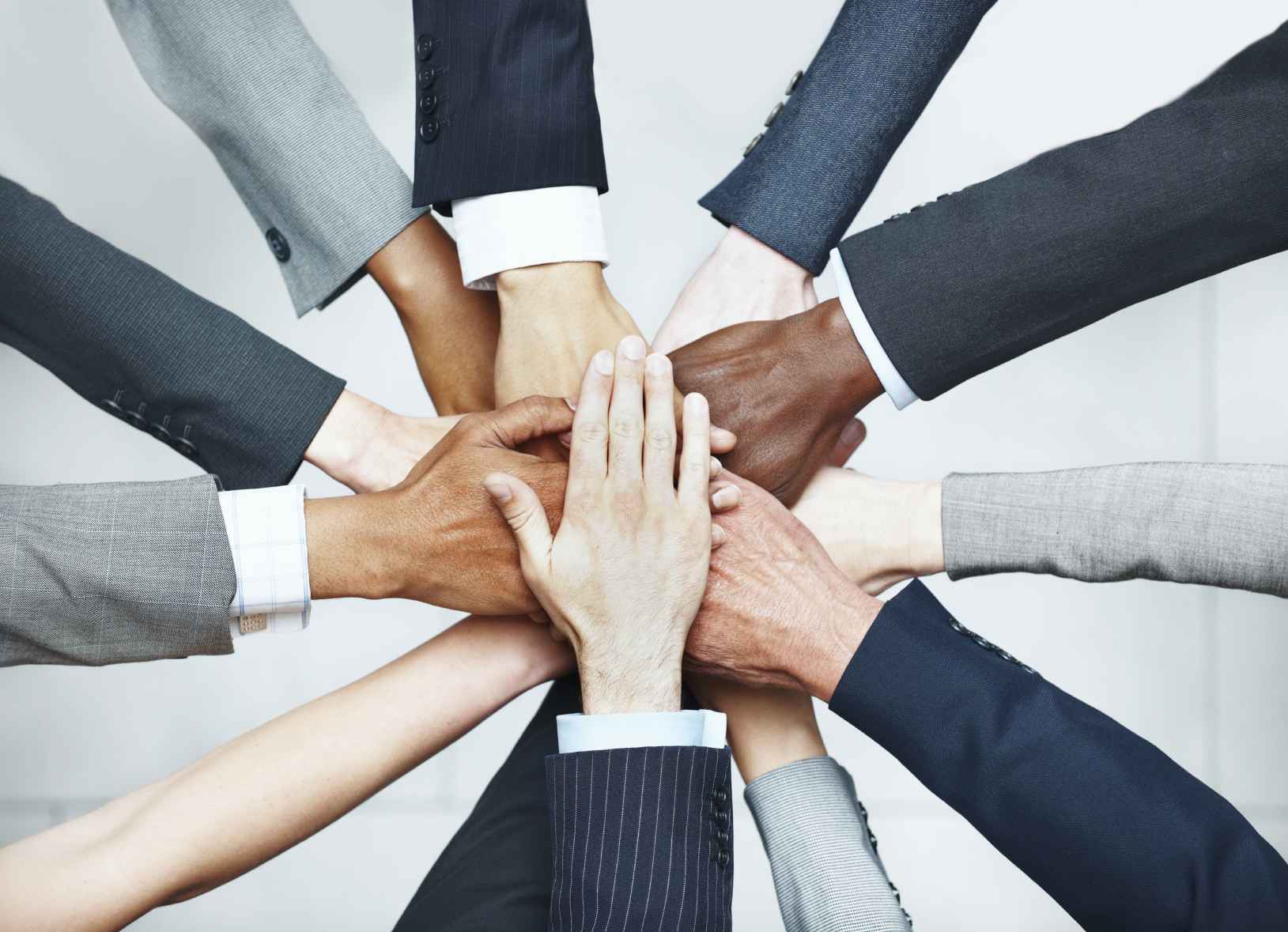World Updates | Update information about politics and social around the world
Jan Eliasson: Enhancing Global Cooperation For Sustainable Development
The world faces many complex and interconnected challenges. Jan Eliasson, former Deputy Secretary-General of the United Nations, believes that global cooperation and sustainable development are crucial to address these challenges and build a better world for future generations.

TTC AgriS International Partners Day 2024 promotes global cooperation - Source en.vcci.com.vn
Editor's Notes: "Jan Eliasson: Enhancing Global Cooperation For Sustainable Development" have just published today. As global citizens, we believe that understanding how Jan Eliasson: Enhancing Global Cooperation For Sustainable Development can help you make a better decision is important.
Building on his decades of experience in international diplomacy, Eliasson, in his book, "The Future We Want: Global Cooperation for Sustainable Development," advocates for a renewed commitment to multilateralism and international cooperation, as well as a focus on long-term sustainability, leaving no one behind.
| Key Differences | Key Takeaways |
|---|---|
| Focus on global cooperation and sustainable development | Importance of multilateralism and international collaboration |
| Addresses complex and interconnected challenges | Need for long-term sustainability |
| Advocacy for leaving no one behind | Strong emphasis on shared responsibility |
Transitioning to main article topics
FAQ
This section addresses commonly asked questions and misconceptions regarding the role of global cooperation in achieving sustainable development.
Question 1: What is the significance of global cooperation for sustainable development?
Answer: Global cooperation is paramount for sustainable development as it facilitates resource sharing, knowledge transfer, and the coordination of international efforts. By working together, countries can pool resources, share expertise, and learn from one another's successes and failures. This collaboration fosters collective action and enables the efficient implementation of sustainable practices at a global scale.

Political action. Diverse people involved in global sustainable - Source www.alamy.com
Question 2: How does global cooperation contribute to addressing global challenges?
Answer: Global cooperation provides a platform for addressing complex transboundary challenges that require collective solutions. Climate change, poverty eradication, and the spread of infectious diseases are among the issues that necessitate international collaboration. By uniting governments, organizations, and individuals, global cooperation facilitates the development of coordinated strategies and the mobilization of resources necessary to tackle these challenges effectively.
Question 3: What are some specific examples of successful global cooperation for sustainable development?
Answer: The Sustainable Development Goals (SDGs), adopted by all UN member states in 2015, exemplify the power of global cooperation. The SDGs provide a comprehensive framework for addressing a wide range of sustainable development issues, from poverty reduction to climate change mitigation. Global cooperation has also been instrumental in the establishment of international treaties such as the Paris Agreement, which aims to limit greenhouse gas emissions and combat climate change.
Question 4: What are the challenges to effective global cooperation?
Answer: Global cooperation can be hindered by a variety of factors, including political differences, economic disparities, and competing national interests. Miscommunication, mistrust, and a lack of political will can also impede collaborative efforts. Overcoming these challenges requires sustained dialogue, the building of trust, and a shared commitment to the principles of sustainable development.
Question 5: How can individuals contribute to global cooperation?
Answer: Individuals play a crucial role in fostering global cooperation for sustainable development. By educating themselves about global issues, advocating for sustainable policies, and supporting organizations working on these issues, individuals can raise awareness, influence decision-making, and contribute to a more sustainable future.
Question 6: What is the future of global cooperation for sustainable development?
Answer: The future of global cooperation for sustainable development is both promising and challenging. As the world faces increasingly complex and interconnected challenges, the need for cooperation will continue to grow. By working together, governments, organizations, and individuals can create a more sustainable, equitable, and prosperous future for all.
Global cooperation is an essential pillar of sustainable development, providing a platform for addressing global challenges, sharing resources and knowledge, and coordinating international efforts. It is through collaboration and collective action that humanity can overcome the challenges of the 21st century and build a more sustainable future.
Tips
The concept of sustainable development was launched in the late 1980s. It brought forth an approach for development that can not only meet the requirements of the present but also safeguard the needs of future generations. Jan Eliasson: Enhancing Global Cooperation For Sustainable Development points out a few approaches to develop global cooperation for this very goal.
Tip 1: Understand the importance of global cooperation
Many of the world's most pressing problems are so large that they cannot be solved by any one country acting alone. Climate change, poverty, and nuclear proliferation are just a few examples. Global cooperation is essential for addressing these challenges and achieving sustainable development.
Tip 2: Be willing to compromise
Global cooperation is based on negotiation. Different stakeholders will have different interests, and it is important to be willing to compromise in order to reach agreement. This does not mean giving up on your own principles, but it does mean being willing to work together to find solutions that meet the needs of all parties.
Tip 3: Build trust
Trust is the foundation of any successful relationship, and it is no different when it comes to global cooperation. Building trust takes time, but it can start by being open and honest with each other, by keeping your commitments, and by respecting the opinions of others.
Tip 4: Establish clear goals
When you are working together towards a common goal, it is important to have a clear understanding of what you are trying to achieve. This will help to ensure that everyone is on the same page and that you are working together effectively.
Tip 5: Be patient
Global cooperation is not easy, and it can take time to achieve results. It is important to be patient and to persevere, even when you face setbacks. With time, hard work, and dedication, you can help to make a difference in the world.
By following these tips, you can help to enhance global cooperation for sustainable development. This will help to create a more just, equitable, and sustainable world for all.
Jan Eliasson: Enhancing Global Cooperation For Sustainable Development
With the Agenda 2030 and Sustainable Development Goals (SDGs), the world has a promising framework to create a more just, peaceful, prosperous, and sustainable future. However, achieving these goals requires enhanced global cooperation, a mission that Swedish diplomat and former UN Deputy Secretary-General Jan Eliasson has dedicated his career to. To advance sustainable development, Eliasson emphasizes six key aspects in promoting international collaboration and action.
- Strengthen Multilateralism: Reinforce global institutions and mechanisms for collective action.
- Foster Partnerships: Cultivate collaboration between governments, businesses, civil society, and individuals.
- Promote Inclusive Development: Ensure all people have the opportunity to contribute to and benefit from development.
- Advance Human Rights: Protect and promote the rights of all individuals, indispensable for sustainable development.
- Empower the Next Generation: Invest in education, youth empowerment, and their engagement in decision-making.
li>Advocate for Climate Action: Address the urgent challenges of climate change and environmental degradation.
These aspects are interconnected, recognizing that global cooperation requires inclusive, collaborative, and effective approaches. Strengthening multilateralism provides a framework for nations to work together, while partnerships foster innovation and resource mobilization. Inclusive development and human rights ensure that the benefits of progress reach all, empowering individuals to contribute to sustainable solutions. Climate action addresses a crucial threat to humanity, and investing in the next generation ensures long-term commitment to sustainable development. Through his dedication to these aspects, Jan Eliasson has been an instrumental force in advancing global cooperation for a more sustainable future.

Cooperation Wallpapers - Top Free Cooperation Backgrounds - WallpaperAccess - Source wallpaperaccess.com
Jan Eliasson: Enhancing Global Cooperation For Sustainable Development
In his address, Jan Eliasson emphasized the crucial connection between global cooperation and sustainable development. He stressed that addressing global challenges like climate change, poverty, and inequality requires concerted efforts from all nations and stakeholders. By working together, countries can share knowledge, resources, and expertise to find innovative solutions. This collaboration allows for a more equitable distribution of benefits and responsibilities, ensuring that all countries contribute to and benefit from sustainable development.

Graph that shows the seventeen different aspects of Global, Sustainable - Source www.pinterest.ca
For instance, the Paris Agreement on climate change is a testament to the power of global cooperation. By setting binding emission reduction targets and providing a framework for collaboration, the agreement has mobilized countries to take ambitious actions towards a more sustainable future. Similarly, the Sustainable Development Goals (SDGs) adopted by the United Nations provide a comprehensive roadmap for global cooperation on a wide range of economic, social, and environmental issues.
The practical significance of understanding the connection between global cooperation and sustainable development is immense. It enables policymakers to design more effective strategies that leverage the benefits of collaboration. It also helps citizens understand the importance of supporting international organizations and initiatives that foster cooperation and promote sustainable development.
| Challenges | Practical Applications | |
|---|---|---|
| Climate Change | Rising sea levels, extreme weather events, loss of biodiversity | Global agreements like the Paris Agreement, international collaboration on renewable energy and carbon capture technologies |
| Poverty | Lack of access to healthcare, education, and income | Development aid, microfinance initiatives, partnerships between developed and developing countries |
| Inequality | Disparities in wealth, income, and opportunities | Progressive taxation, social welfare programs, promotion of inclusive economic growth |
Conclusion
In conclusion, Jan Eliasson's emphasis on enhancing global cooperation for sustainable development is a reminder that the world's most pressing challenges cannot be solved by any single country acting alone. By fostering collaboration, sharing knowledge, and working towards common goals, nations can create a more just, equitable, and sustainable future for all.
The future of sustainable development depends on our collective ability to bridge divides, build partnerships, and harness the power of global cooperation. Let us continue to work together to create a world where everyone has the opportunity to live a healthy, fulfilling, and sustainable life.